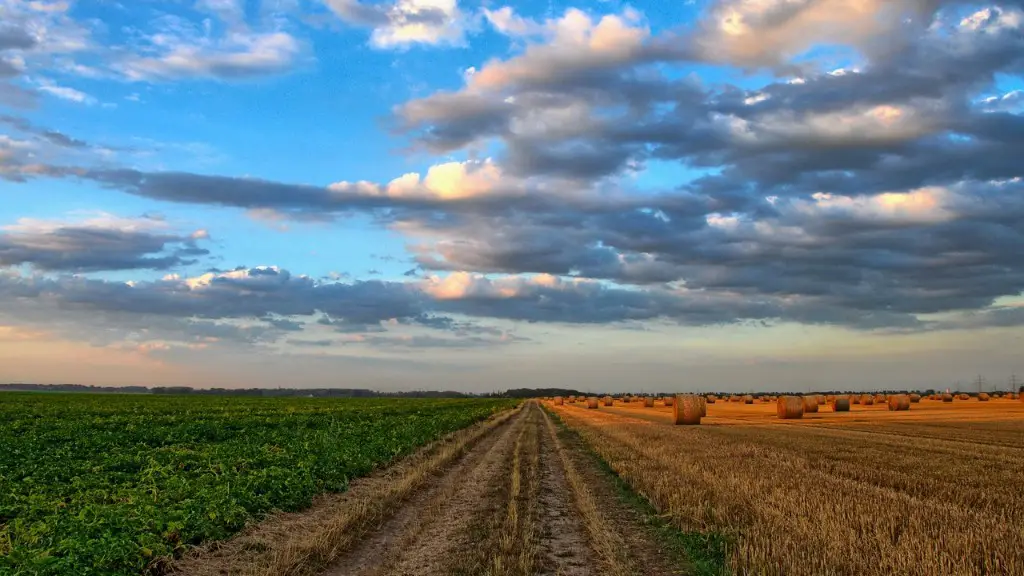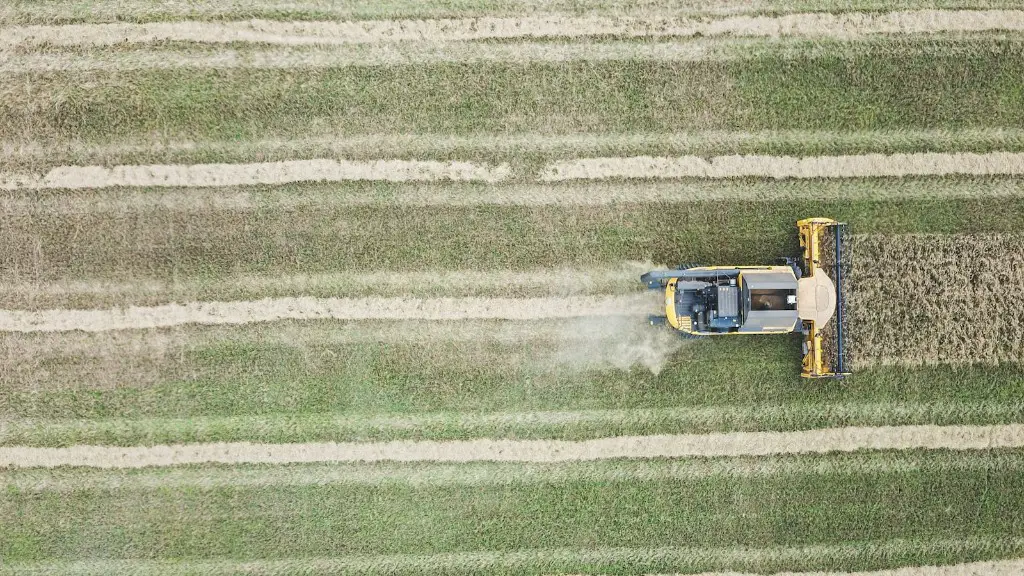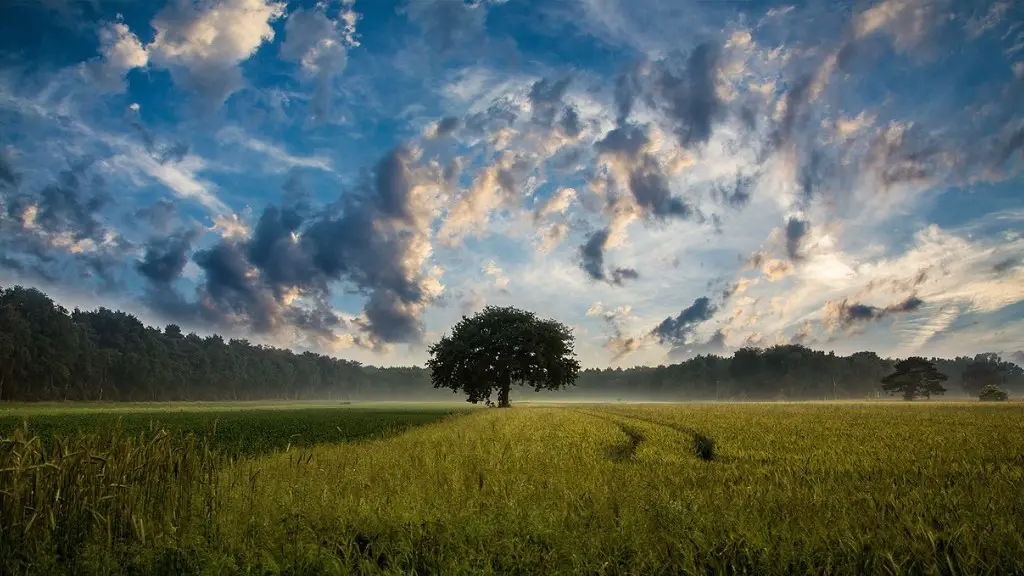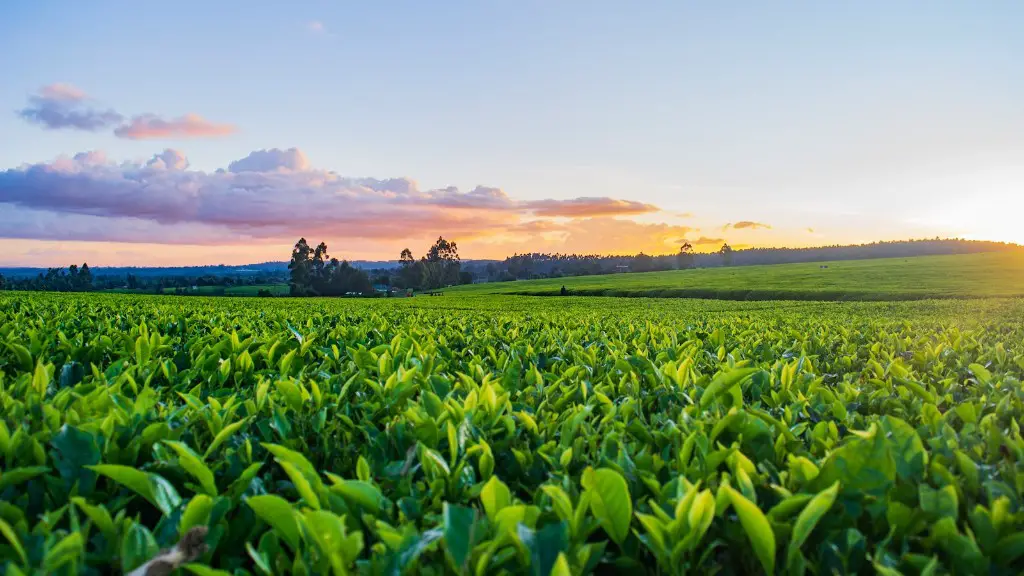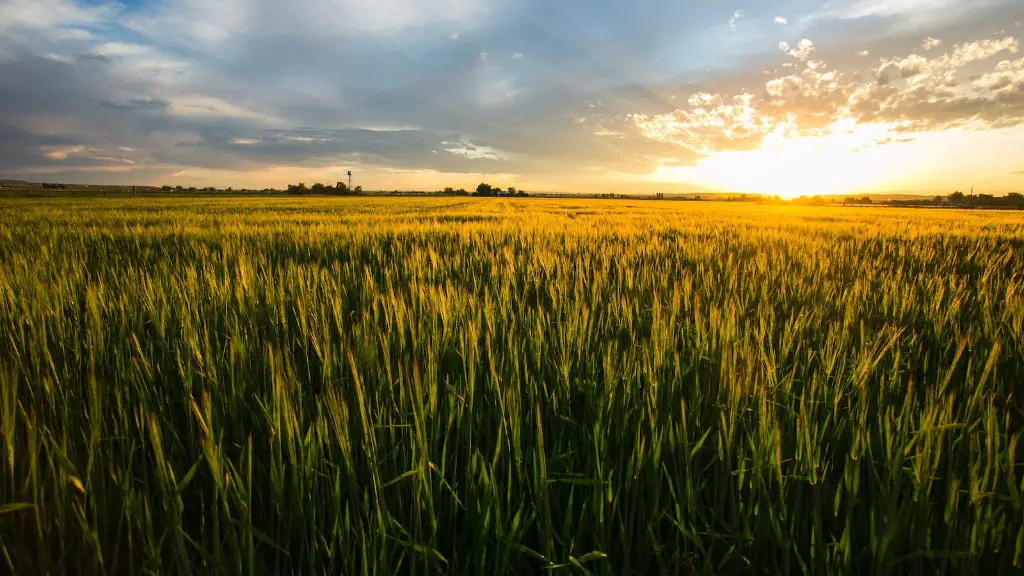Organic farming and sustainable agriculture are both systems of food production that aim to be environmentally friendly and cause minimal harm to the natural ecosystem. However, there are some key differences between the two methods. Organic farming focuses on using natural processes and materials, such as manure and compost, to fertilize the land, control pests, and manage weeds. On the other hand, sustainable agriculture seeks to create a more diverse and efficient system that conserves resources, improves soil health, and reduces pollution.
There is no one-size-fits-all definition of sustainable agriculture, but it generally refers to production systems that seek to protect and enhance natural resources, while also being economically viable and socially just. Organic farming is just one type of sustainable agriculture, and although it shares many of the same goals, there are some important distinctions. For instance, organic farming relies on specific production methods that prohibit the use of synthetic inputs, while sustainable agriculture systems may or may not use synthetic inputs.
What is another name for sustainable agriculture?
Regenerative agriculture is a type of land management that focuses on rebuilding the soil. This includes practices like no tillage, which helps to increase biodiversity in the soil and its water holding capacity. Regenerative agriculture has many benefits, including improved soil health, increased crop yields, and decreased water usage.
Sustainable agriculture is a type of agriculture that focuses on producing food in a way that is environmentally friendly, socially responsible, and economically viable. There are many different sustainable agriculture methods and farming practices, including permaculture, biodynamic farming, hydroponics and aquaponics, urban agriculture, and agroforestry. Each of these methods has its own unique benefits and challenges, but all of them can help to create a more sustainable food system.
What is the relationship between organic farming and sustainable development
Organic farming is a type of agriculture that does not use synthetic chemicals or genetically modified organisms. Instead, organic farmers rely on natural processes to enhance the quality of their crops. This type of agriculture is not only environmentally friendly, but it also sustains the quality of the ecosystem.
Organic farming is a more sustainable and environmentally friendly option than conventional agriculture. Organic farming has a smaller carbon footprint and helps to conserve and build soil health. It also replenishes natural ecosystems, which results in cleaner water and air. Plus, organic farming does not use toxic pesticides, which can pose a threat to human health.
Why is organic food not considered sustainable?
Organic food is generally considered to be better for the environment than conventionally farmed food. However, a new study suggests that organic food may actually be worse for the climate than conventionally farmed food.
The study, which was conducted by researchers at the University of Michigan, found that organic food production results in lower yields per hectare than conventional farming. This is because organic farmers don’t use synthetic fertilizers, which can help to boost crop yields.
The lower yields of organic farming mean that more land is required to produce the same amount of food. This, in turn, leads to higher carbon emissions. The study found that, on average, organic food production results in 50% more carbon emissions than conventional farming.
The study’s authors say that this doesn’t mean that organic food is bad for the environment. They say that organic farmers are often using more sustainable practices, such as rotational grazing, which can help to offset some of the emissions.
However, the study’s authors say that, if we’re serious about reducing carbon emissions, we need to focus on producing food more efficiently, rather than switching to organic methods. They say that, in order to meet the world’s demand for food, we need to produce
Sustainable agriculture is an approach to producing food that is environmentally friendly and doesn’t deplete natural resources. There are many elements that can make up sustainable agriculture, including permaculture, agroforestry, mixed farming, multiple cropping, and crop rotation.
Permaculture is a type of agriculture that focuses on creating an ecosystem that is self-sufficient and sustainable. This can include using natural features like trees and shrubs to create windbreaks, using cover crops to improve soil health, and using water catchment systems to reduce water waste.
Agroforestry is a type of land management that combines trees and other plants with traditional crops or livestock. This can help to improve soil quality, provide shelter for animals, and provide a source of income from the sale of timber or other products.
Mixed farming is an approach that combines crops and livestock in a single system. This can help to reduce the risk of crop failure, provide a source of income from the sale of livestock, and improve soil fertility.
Multiple cropping is a type of agriculture that involves growing more than one crop in a single growing season. This can help to improve yields, reduce the risk of crop failure, and improve soil fertility.
What defines sustainable agriculture?
Sustainable agriculture is necessary to protect our environment and aid in the expansion of natural resources. By using methods that are less harmful to the environment, we can help to preserve our planet for future generations. In addition, sustainable agriculture can help to make the best use of nonrenewable resources, such as water and soil. By using these resources wisely, we can help to ensure that they will be available for future generations.
Cover crops and perennials are important for maintaining soil health. They help prevent erosion, replenish soil nutrients, and keep weeds in check. This reduces the need for fertilizers and herbicides, which can be harmful to the environment.
What is the best sustainable agriculture
Soil erosion is a huge problem worldwide, causing immense damage to crops,farmlands, and the environment. Crop rotation, intercropping, and growing cover crops are all excellent ways to prevent erosion and restore nutrients to the soil. Additionally, managing irrigation to reduce runoff is another great way to prevent erosion. All of these methods are incredibly important for maintaining healthy soil and protecting our food supply.
There are many practices that can make agriculture more sustainable, and many of them are already being used by farmers around the world. Some of the most promising practices include organic farming, agroforestry, natural farming, the system of rice intensification, precision farming, conservation agriculture, crop rotation and intercropping, and cover crops and mulching.
Is organic farming considered sustainable?
Organic foods are cultivated without the use of these harmful chemicals, and they often promote more sustainable methods of farming (such as crop rotation). This means that organic food is better for the environment overall. In addition, organic foods are often more nutritious than conventionally grown foods, since they are not depleted of nutrients by heavy pesticide use.
Organic farming is an eco-friendly alternative to conventional farming that relies on synthetic pesticides and fertilizers. proponents of organic farming believe that it is a more sustainable and environmentally friendly option that respects the natural ecosystem.
Why is organic farming called the best form of sustainable agriculture
Organic farming has a number of benefits compared to conventional agriculture. These include using fewer pesticides, reducing soil erosion, decreasing nitrate leaching into groundwater and surface water, and recycling animal wastes back into the farm. However, these benefits are counterbalanced by higher food costs for consumers and generally lower yields.
Sustainable agriculture is much more efficient than conventional agriculture. It relies solely on natural processes for input and recycles nutrients on-site to eliminate the use of non-renewable resources. Alternatively, conventional agriculture requires an incredible amount of energy to produce, prepare, and transport food.
What is the opposite of organic farming?
Organic farming is a type of agriculture that relies on naturally occurring processes, rather than the use of synthetic inputs, such as chemical fertilizers and pesticides. Organic farmers work with natural systems to enhance crop growth, while also minimizing the impact of farming on the environment.
There is a growing movement to support sustainable agriculture, which is seen as a more environmentally friendly and humane alternative to industrialized agriculture. Sustainable agriculture generally relies on more natural methods, such as using compost and other organic matter to fertilize plants, and avoiding the use of harmful chemicals. This type of agriculture is often more labor-intensive, but it is thought to be better for the environment and the overall health of both people and animals.
Conclusion
No, organic farming is not the same as sustainable agriculture. Sustainable agriculture is a type of agriculture that focuses on producing long-term crops and raising livestock in a way that is environmentally sustainable. Organic farming, on the other hand, is a type of agriculture that uses only organic materials and methods.
Though sustainable and organic agriculture share some practices, they are not the same. Sustainable agriculture is a system of practices that protect and improve the natural resources of the farm, including the soil, water, and biodiversity. The goal of sustainable agriculture is to produce food while reducing environmental degradation. On the other hand, organic agriculture is a system of practices that excludes the use of synthetic inputs, including pesticides, herbicides, and fertilizers. Organic agriculture also aims to improve the quality of the environment by using management practices that restore, maintain, and enhance ecosystem services.
